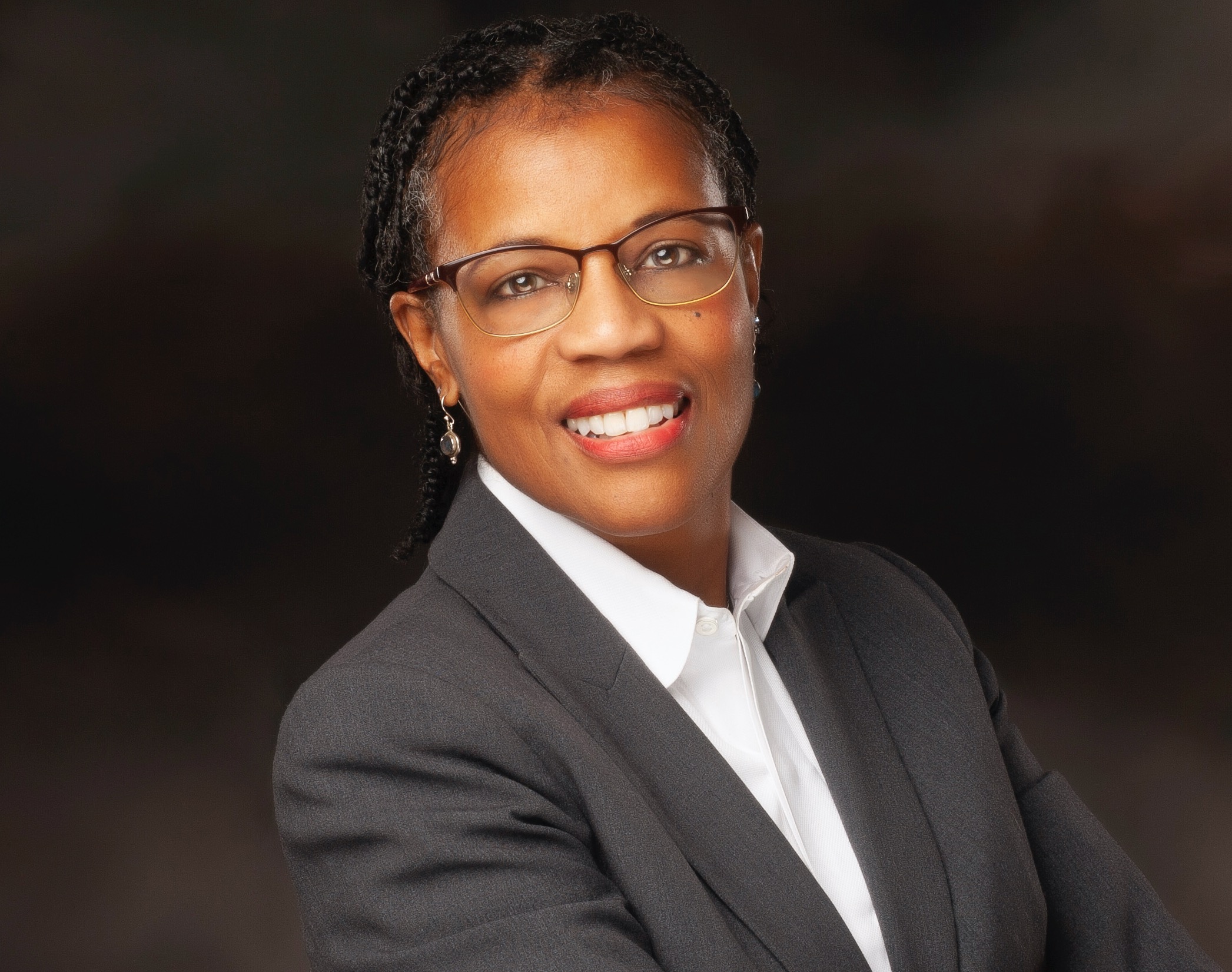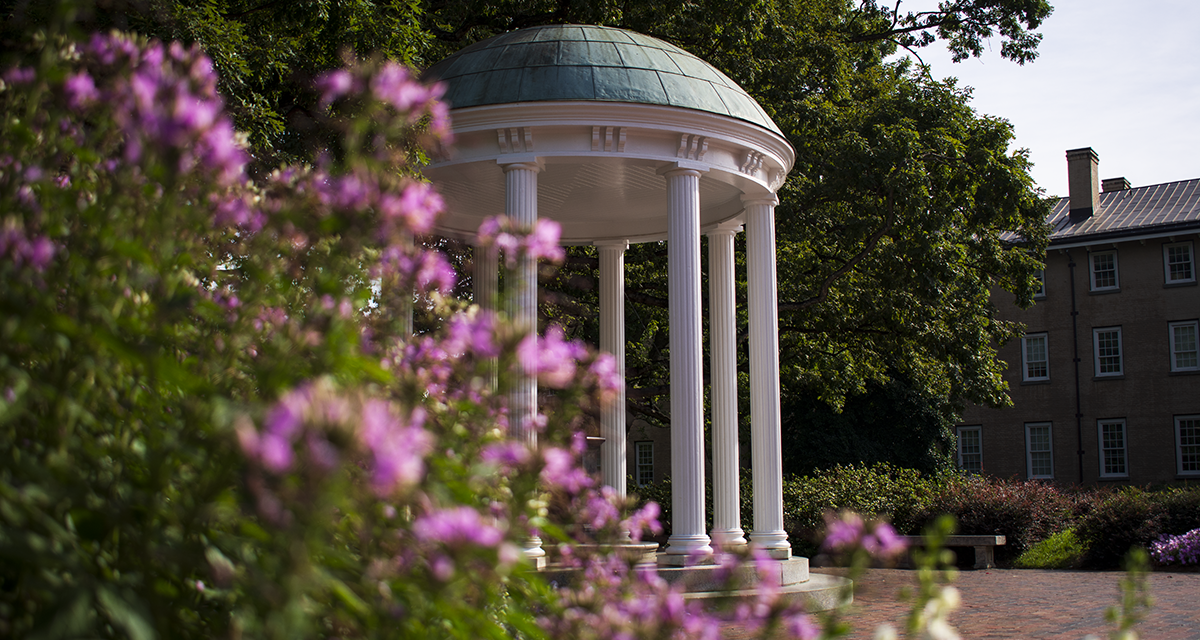Prayer. Outrage. Hugs. Anger. Bible Study. Profanity. Laughter. Tears. HeartMath. Disgust. Long walks. Resentment. Affirmations. Rage. Biking. Tired. Writing. Grace.
The ongoing mental and physical gyrations while trying to survive as a Black faculty member at my alma mater, the University of North Carolina at Chapel Hill (UNC), is just exhausting. I came back in 2007 to join the admired UNC faculty with the belief that the university is indeed the “southern part of heaven.” The beauty of the state, the pleasant climate, the attractive beaches, and the majestic mountains were too enticing to turn down. Little did I realize or care to cautiously examine the longstanding civil war of division, control, and exploitation was not only in the community but on campus.
If one is only slightly connected to major research institutions or the state of North Carolina, it is well known that this struggle for equality, inclusion, and justice for people of color and women is centuries old. The coals of trickery, dubiousness, and double-dealing that often embarrass the academic community, harm and destroy careers, and stifle the institution’s potential and possibilities are red hot. I was so naïve to think that academia would have much less bureaucracy and fewer insecure leaders than corporate America, in which I worked for more than 17 years. I was shocked to experience the level of inefficiency in operations and lack of transparency and ethics by certain people with high stature and stellar academic portfolios at UNC. For some Brown and Black staff and faculty, we face White colleagues who work with us, smile in our faces, and behind our backs smear our names, quote untruths to others, dismiss our scholarship and projects, and paint us as “angry” and not the right fit. They work to remove us in conniving ways to maintain their idea of power and reward.
More importantly, the vast majority of White colleagues who stand for equity and belonging are often marginalized and/or lack the courage to confront evil and wrongdoings. That is, the White sponsors or champions for fairness and the belief in potential are few and far between. The benefits and advantages of the influential faculty and senior administrative jobs outweigh the necessary sacrifice and authenticity required to stop hate, lies, and discrimination. Similar to the United States, UNC has a glorious and flawed history. A history that continues to repeat itself. Sadly, the recent handling of the Nikole Hannah-Jones recruitment and hiring has shone another bright light on this seemingly continued chain of academic leadership failure.
What we know is that Hannah-Jones, a distinguished African-American journalist, wanted to come back (M.A., 2003) to her alma mater to serve the community through mentorship, instruction, and research. What we don’t know is how a decision to strongly recruit her ended up turning into a fixed-term faculty appointment starting July 1, which is unlike all of the other previous contracts for persons offered this prominent Knight Chair in Race and Investigative Journalism at UNC’s Hussman School of Journalism and Media. Karen Rundlet, journalism director at Knight Foundation, states, “The Knight Chairs are highly-respected news leaders who bring insights about journalism and support elevating it in the academy. Their work contributes to keeping communities informed and democracy robust. Nikole Hannah-Jones is an outstanding addition to this group of leaders.”
So, Hannah-Jones, a Pulitzer Prize-winning investigative journalist, MacArthur Fellowship “Genius Grant” recipient, the National Association of Black Journalists’ Journalist of the Year awardee, recipient of Peabody and Polk Awards for radio reporting, Columbia University’s John Chancellor Award (2x) for Distinguished Journalism, a fellow in The Society of American Historians, and a Hall of Fame member of the NC Media & Journalism, was not immediately granted the tenure appointment. The finger pointing and “he said-she said” accusations are underway as to how such a blunder could happen; and the storm clouds over UNC for this latest travesty are thick. UNC alumni, faculty, students, the Chapel Hill-Carrboro NAACP, and even the Robert Wood Johnson Foundation, our nation’s largest philanthropy focused solely on health, have all publicly raised eyebrows and questioned the process and appointment outcome. An esteemed chemistry professor at a top research university, recruited to UNC for almost two years, recently rejected our offer to join the UNC faculty due to the mistreatment of Hannah-Jones. For a university that professes to be “for the people” and to have proclaimed new insights on diversity since our $2.5+ million “fingers caught in the cookie jar” muddle with the Confederate Monument (aka Silent Sam) and awakening with the George Floyd murder, this Hannah-Jones action is once again a clear embarrassment to its stated principles and talk of “getting it right.” Yes, talk is cheap.
Black women who work in higher education at historically white institutions are not surprised though. Several of my colleagues and friends shared their thoughts on this disturbing and painful decision. I am inspired by their truth and courage to share the realities of working and serving the citizens and students of the state of North Carolina.
Agbe-Davies, PhD – “I have concerns about what this situation says about academic freedom and faculty governance, of course. But most of all it makes me think that influential people (donors, boards, upper-level administrators) seem highly risk averse, but maybe are looking out for the wrong risks. I think there’s a real danger of our being pegged as a 20th (or worse, 19th!) century university in a 21st century world. The damage to our reputation is substantial and won’t be easily repaired.”
Cotton Laws, PhD – “My feelings about all of this are varied. When I first learned about this case, I thought this is a high-profile case. But how many others were not? This is not new but definitely newsworthy because it is NHJ. I am also thinking a lot about my time there as an undergrad and the lessons taught by our beloved Dr. Sonja Haynes Stone who did not have tenure yet made significant contributions. To Nikole Hannah-Jones, I say if they don’t respect applaud or acknowledge your genius scholarship and brilliance, and you already have received some of the highest honors a scholar and journalist can receive, please take your gifts to a HBCU. In the end, I am riding with my Sister because all too often our brilliant gifted and Black scholars are denied tenure when white mediocrity is often rewarded with it. And to all of the Black intelligentsia of elected officials, UNC alumni, and donors who remain silent on this issue thinking it’s not their fight…let’s not forget the words of another brilliant journalist historian, Ida B. Wells who stated, ‘The shorter Negro stood gazing at the horrible death of his brother without flinching. Five minutes later he was also hanged.’”
Holman-Copeland, PhD – “Students are traumatized; staff and faculty feel despair. The nation is anguished by the blatant behavior of North Carolina’s leadership. Whether accidental ignorance or willful ignorance, it is a dangerous path we trod when we allow egregious acts of discrimination to become our norm, rather than the exception. We cannot give hate safe harbor because given the slightest bit of oxygen, the flame will engulf us as a nation, a university and as a people. Our voices are a reckoning to exemplify courage to students who view us as role models. In the words of Maya Angelou, “You cannot practice any other virtue without courage.” If we want to change the heart of the world, we have to impact the mind of our youth…our students. Now is the time to stand.”
Massey – “I am very disappointed with UNC. Precisely a year after the murder of George Floyd and contrary to all of these initiatives for improving diversity, equity and inclusion, the leadership continues to show that they do not actually want to do what is needed to effect change. Hearing that the Board of Trustees may have kowtowed to the wishes of a donor instead of trusting the voices of their faculty – the ones actually putting in the work to make this school great – well; it doesn’t make any Black or Brown person proud to say they are an employee, a student or an alumnus.”
What’s next for UNC? Will we ever have peace about this particular process and conclusion? The seemingly increased integration and oversight by the Board of Trustees and Board of Governors into the Chapel Hill campus affairs can be viewed as troubling. Many would argue that the need for management and surveillance is necessary though due to the history of an absence of vision and ability by senior administrators to do the right thing at the right time for all community members. What happens when minority rule means that decisions are made by people who are out of touch with the will of the people they purport to serve and are ill-informed about the mounds of data from leading scholars? Or the denial and dismissal of the traumatic lived experiences of those attempting to navigate structural racism? The winds of change are strong and blowing towards increased organizing of the people and education of the full history of our country. Understanding how systems and institutions achieve their objectives while simultaneously harming and helping communities is an important lesson for everyone. Hiding or dismissing the race realities only serves to keep us blind and steps further away from unity and healing.
I am prayerful that Hannah-Jones continues to blaze her trail through remarkable journalism and with power and audacity to confront her antagonists. I have learned so much from her work and would be so blessed to call her a UNC colleague. And yet, I have to put my own selfish needs aside and stand alongside the student government who fearlessly proclaimed that “Walking into this University, unfortunately, you are walking into a place where respect is minimal, criticism is high, and quantity is all too few for academics of color—especially Black women. Knowing this and recognizing the critical importance of upholding the integrity and impact of your work, we cannot ask you to come here.” There many avenues and paths for Hannah-Jones to work directly with young Tar Heels without being a full-time professor here at UNC. I even offer my services to help her craft the best way to “ignite public conversation” as the mission of the School of Journalism states.
My disappointment and fury with a university that I love remains. A dear friend recently told me that UNC is “the most racist liberal university in the country.” I have been reflecting on that comment and wondering about the many examples in my own life and others at UNC who have to daily navigate the potholes, trap doors, and glass ceilings of the academy. The code switching, reading the room, masking trauma, practicing resiliency is tedious and energy draining. Nevertheless, and thankfully, my deep faith instructs me to forgive and hold grace for those who seek to hold back progress. Find the God-seed in those who view their own achievements as exclusively merit-driven journeys absent of the access, favors, opportunities, and networks provided them due to their whiteness. My Pastor reminds me to always pray for those who cause you pain. My knees are sore and bloodied. Wake up, good people, wake up.
Hark the Drum!

“Never Too Far” contains perspectives and insights from an inquisitive and engaged Orange County transplant from Philly. Deborah Stroman is an entrepreneur and UNC leadership professor who has seen too much and not enough, and thus continues to question and explore the thoughts and actions of humankind.
Chapelboro.com does not charge subscription fees. You can support local journalism and our mission to serve the community. Contribute today – every single dollar matters.


